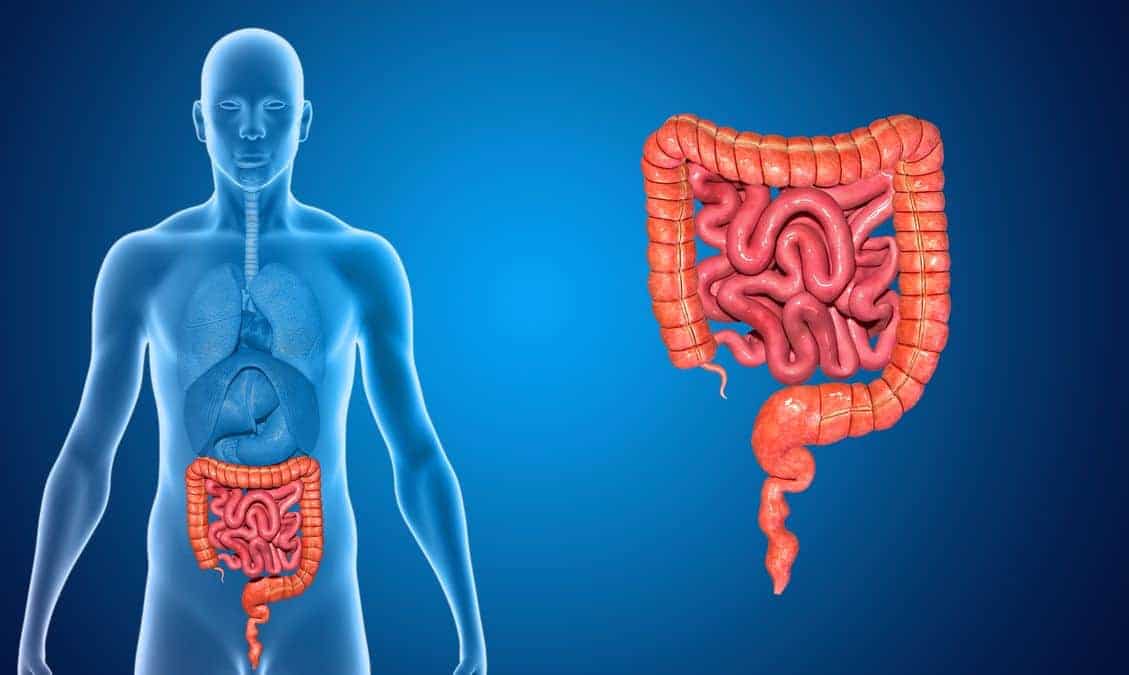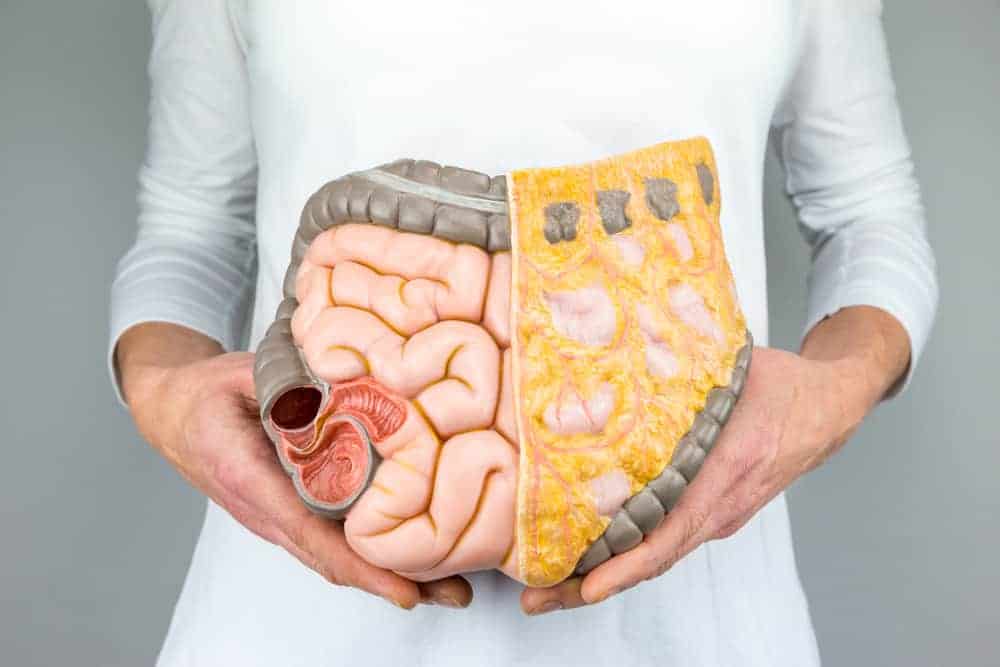
How to take care of the intestines – so that they function properly?
One of the most important organs in the human body is certainly the intestines, large and small, which are an essential part of our digestive system. They perform many important functions, without them, among other things, proper digestion and the functioning of the excretory system would be impossible. So it is worth learning how to take care of the intestines so that they function for a long time and without any health disorders.
Contents
What is the small intestine and what is its structure?
Thehuman int estine is divided into two sections, the small intestine and the large intestine, which perform different functions, but have a similar structure. We will first introduce the small intestine, which is the longest part of our digestive system, reaching a length in an adult of up to 6-8 meters. This may be surprising to say the least, but it fits easily into the abdominal cavity and is located between the large intestine and stomach, and is formed by three layers:
- mucous membrane;
- muscular membrane;
- peritoneum.
In the structure of the small intestine, we also distinguish four of its most important sections:
- the pylorus, which connects the stomach to the duodenum and is made up of muscular tissue;
- duodenum, which is connected precisely to the stomach, responsible, among other things, for the digestion of proteins, fats and carbohydratescarbohydrates with the participation of digestive enzymes and enabling the absorption of the nutrients we supply to the body with food;
- the jejunum, 2 to 5 meters in length, where the most important proper digestive processes take place and nutrients are absorbed by the intestinal villi;
- ileum, mostly about 1.5 meters long, the place where final digestion and absorption and assimilation of nutrients takes place, passing into the large intestine.
What is the large intestine and what components does it consist of?

As for the large intestine, it connects to the small intestine on one side and to the rectum on the other, and is also much shorter, being 1.3 to 1.5 meters long. One of its characteristics is also its location, if you look at a picture of the human digestive system, you will immediately notice that the abdominal cavity is surrounded by it. Like the small intestine, the large intestine also consists of several sections:
- the cecum, also called the cecum, it is from it that the completely redundant appendix leaves, and partially digested food from the small intestine enters the cecum;
- the ascending colon, measuring 23 cm;
- the hepatic flexure, as the name suggests, located just below this important organ;
- the transverse colon, located in the upper abdomen and running diagonally;
- the splenic flexure, located just below the spleen;
- the rectosigmoid colon, already running toward the rectum and only 5 cm long;
- the rectum, the last segment measuring 15 to 20 cm and connected to the anal canal.
What functions do the intestines perform in the human body?
As you can see, the structure of the small and large intestines is quite complex, which should not be surprising given the various tasks they have to perform in the human body. They are an essential part of our digestive tract, and functions can be divided according to the type of intestine:
Small intestine:
- food mixed with stomach acids enters it;
- in it the process of actual digestion begins;
- further digestive enzymes are secreted that break down food particles into small components;
- it is here that nutrients are absorbed which then reach the bloodstream and lymphatic system;
- is responsible for the production of hormones that determine the proper course of digestive processes;
- facilitates the absorption of water also supplied with food.
Large intestine:
- it carries out metabolic processes activated by intestinal bacteria, mainly anaerobic bacteria of the Bacteroides fragilis family and aerobic bacteria such as Escherichia coli;
- also extracts water and salt from intestinal contents;
- further processes previously undigested food residues;
- the production of feces takes place in it, which passes all the way to the rectum and is then excreted through the anus.
The intestines also perform worm-like movements, called peristalsis, the course of which depends on the presence of several important hormones. They increase simultaneously under the influence of other factors, such as nervousness, which can end in diarrhea, and the opposite occurs under the influence of severe, prolonged stress, a common cause of painful constipation.
However, proper peristalsis is an essential process for the proper functioning of the digestive system, without it it would be impossible to move the eaten and digested food through the entire length of the intestines, from the pylorus to the anus.
Which intestinal ailments are most common?

Any disorder of the intestines, both small and large intestines, cannot be ignored, appropriate measures must be taken immediately, and health risks are primarily:
- digestive disorders, nausea, vomiting, diarrhea or constipation;
- irregular bowel movements;
- abdominal pain of varying intensity;
- irritable bowel syndrome;
- SIBO, or small intestinal bacterial overgrowth syndrome;
- Celiac disease, an inflammatory reaction caused by gluten intolerance;
- inflammatory bowel disease of an infectious nature, usually caused by Escherichia coli and Salmonella bacteria, and Candida albicans fungi;
- diseases of parasitic origin, usually caused by tapeworm or human roundworm;
- diverticula and polyps of the large intestine;
- colon cancer.
How to take care of intestinal health?
Without the digestive processes taking place in the int estines , we would practically not be able to function, so it is necessary to take proper care of them in order to avoid possible diseases that have a simultaneous negative impact on other aspects of health. The basis for maintaining intestinal health is taking care of the so-called intestinal microflora, which is responsible for the aforementioned functions.
It is influenced by many factors that depend directly on our lifestyle, primarily our diet. If we want to enjoy healthy, properly functioning intestines, we should keep in mind:
Intestinal diet
A proper diet, as recommended by doctors and nutritionists, is the first aspect of taking care of the intestines and the rest of the digestive system, so that overweight and obesity can also be avoided. Therefore, people complaining of any problems with intestinal function should immediately implement an intestinal diet, which at the same time will have a positive effect on overall health.
For many people, an intestinal diet means a radical, almost complete change of previous eating habits, but experts invariably say that it is really worth it. Above all, it is a low-carb, easily digestible diet, with a selection of products that are particularly beneficial to the work of the intestines, so it is essential to remove from the daily menu:
- fast food and highly processed foods;
- legumes, beans and peas;
- certain vegetables that can cause bloating, such as cabbage;
- whole grain products, such as wholemeal bread, but at the same time be sure to keep the right amounts of fiber in your diet;
- fatty meats and cured meats;
- fatty dairy products, yellow cheeses and especially processed cheeses;
- excess sugar, sweets, sodas, fruit juices with fructose-glucose sugar;
- deep-fried foods;
- alcohol, black tea and coffee.
All these gut-damaging products should be replaced:
- bread made from wheat flour;
- dairy products and low-fat milk;
- lean meat and cold cuts;
- mineral water and herbal infusions;
- spices with medicinal properties.
Physical activity

Necessary to maintain proper intestinal peristalsis, stimulate the intestines to work more actively and improve blood flow, which will significantly speed up digestive processes, and various forms of physical activity are allowed. We don’t have to do a sport right away, just an hour’s walk every day can do real wonders, while helping to maintain a healthy body weight.
At the same time, movement counteracts painful constipation, allows you to control your appetite or avoid many digestive disorders. However, it should be borne in mind that excessive exercise can have the opposite effect, becoming a cause of gastrointestinal disorders.gastrointestinal disorders, damage to the membrane lining the intestinal surface from within and the development of dangerous inflammation.
Avoiding stressful situations
Prolonged stress is one of the factors negatively affecting the intestines and the entire digestive system. Among other things, it causes severe pain, contributes to the development of many diseases, including the particularly troublesome and difficult to treat irritable bowel syndrome or inflammatory bowel disease. Other symptoms also appear:
- diarrhea, often bloody, or constipation;
- vomiting, abdominal cramps and pain;
- digestive problems resulting from disruption of the intestinal microflora;
- a decrease in appetite or the inverse of constantly feeling hungry and snacking between meals;
- feelings of general weakness and weight loss;
- sleep problems that can lead to insomnia.
Drinking the right amounts of water
In order for our intestines to perform all the functions mentioned above, it is essential to drink adequate amounts of fluids, at least 2 liters a day. Water and other indicated fluids protect the body from the effects of dehydration, when the remaining residual fluids are stored precisely in the intestines, at the expense of other parts of the body. At the same time, their lack can cause the accumulation of excessive amounts of health-damaging toxins and the retention of feces, the expulsion of which becomes much more difficult and very painful.
The use of herbal treatments

Usually we alleviate any intestinal ailments with the help of pharmaceuticals, which, in addition to their effectiveness, are also characterized by the side effects they can cause. A good way to deal with the ailments described above is herbalism, the use of herbs and plants with proven medicinal properties, and the most commonly used for this purpose are:
- fennel, stimulating the secretion of gastric juices, effectively regulating the rhythm of bowel movements, removing constipation and promoting intestinal peristalsis;
- mint, relieving indigestion symptoms, relaxing smooth muscles and improving digestion;
- cumin, used for nausea, heartburn, flatulence, constipation and diarrhea, regulating the production of bile and gastric juice;
- clary sage, effective for the effects of overeating, having a diastolic and analgesic effect;
- chamomile, which relaxes the smooth muscles of the intestines and helps treat indigestion;
- dandelion, which helps cleanse the intestines of toxins and metabolic residues, regulates bowel movements and supports the intestinal microflora.
Sources:
- https://www.healthline.com/health/digestive-health/how-long-are-your-intestines
- https://www.healthline.com/human-body-maps/small-intestine#1
- https://www.healthline.com/health-news/a-common-antidepressant-may-also-help-relieve-ibs-symptoms



